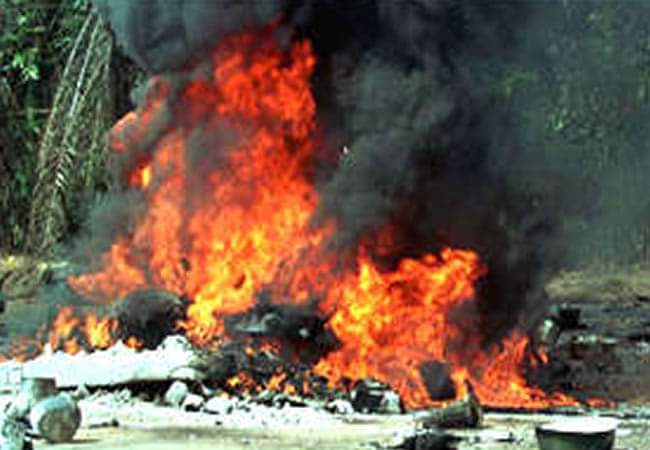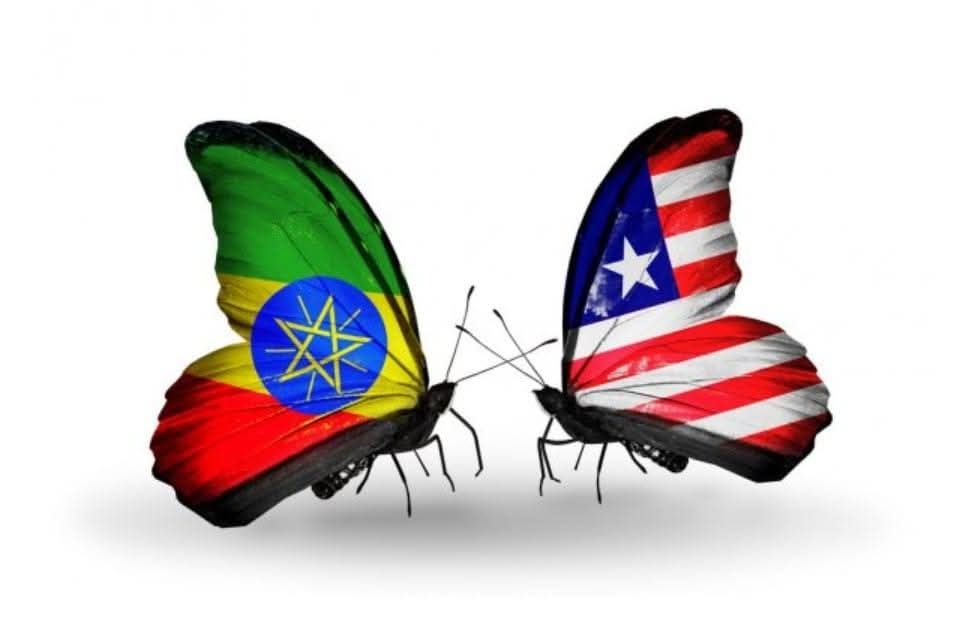TRAGEDY OF A NATION: Remembering Jesse Pipeline Explosion, The Most Deadly in Nigeria

Did you know that the fire from the Jesse pipeline explosion that was ignited on October 17, 1998 burned until a firefighting company from the United States extinguish the blaze on October 23 with a nitrogen-rich foam, almost a week after?
On Saturday, 17 October 1998, a pipeline explosion occurred in Idjerhe Clan comprising 32 communities in Ethiope West Local Government Area of Delta State, Nigeria. The 16 inch petrol pipeline linking the Warri refinery to Kaduna exploded at Atiegwo, leaving hundreds of villagers dead and critically injuring hundreds more in the ensuing inferno. The community most affected was Jesse, the main town in the area.
While the cause of the blast has been debated, the Nigerian then military government and the Petroleum Products Marketing Company (PPMC), a subsidiary of the state-owned Nigerian National Petroleum Corporation (NNPC), without any investigation, stated that the explosion took place after scavengers intentionally ruptured the pipeline with their tools and ignited the blaze. However, others have stated that the pipeline ruptured due to a lack of maintenance and neglect with a cigarette igniting the fire.
In a report titled: 'Idjerhe [Jesse] Oil Fire Disaster, Nigeria Petrol Pipeline Explosion: An Avoidable Tragedy' by the Environmental Rights Action ERA (Friends Of The Earth) on October 21, 1998, it was learnt that a leak in the high pressure pipeline was noticed on Friday, October 16. That day, the local people from Jesse and nearby villages trooped to Atiegwo. Some tried to scoop the fuel as the country has been under an unending fuel crisis since the time of late dictator, General Sani Abacha. Others went to the scene just to look. Some were in their farms while others were either fishing or returning from fetching potable water from the nearby river Ethiope when tragedy struck. A majority of the victims were women and children.
Several testimonials were recorded in the report. One of the testimonials gave her narration thus: "She said she was going to the farm. She left us happy. We were expecting some red cassava for dinner. She never came back. We saw the basin of the cassava. We saw the 'karta' (head pad). We recognised our basin and her cloth. Her body we did not see. Her voice we did not hear. The fire took her from us. They say we are vandals. How? Can Eunice be a vandal? It is the oil people who have been vandalising our means of livelihood. It is the government that has stolen from us and continues to do so even to this minute (voice quivering, and tears rolling down)."
A witness also gave his own account as follows: "In the afternoon of that Saturday, I was sleeping because I wasn't feeling well. I was woken by the explosion and we decided to rush to the place. When we got there, we saw many dead bodies. So we began to cry. Everybody was running here and there looking for their children. In some families, man and wife, father and children, young men, young women, old mammas all died. We trace this incident to the pervasive fuel scarcity in the country.
"When the thing happened, many of them didn't know that it was fuel. They didn't know. Many of those who died went to look at the strange substance coming out from the soil. They did not go to collect fuel. Many of them went to look. Many of them live by the River Ethiope. Those who were just coming with basins/buckets on their heads with water went to take a look at the scene. During the look, the explosion occurred. That is why you see the many basins. Many people reside by the River. How can a motor bike that is using fuel in a place that is bringing out fuel cause fire?"
Still recounting how the incident occurred, another witness stated that: "Nobody really knows what caused that fire. Well, an helicopter belonging to Shell hovered around there, warning people to disperse. Five minutes after, the explosion occurred. I lost five of my cousins...What the government is saying now that these people went to vandalise the pipeline in order to take the oil is untenable. How can a great number of people, almost one thousand come to a conclusion that they want to vandalise the oil (pipeline)?
"The people that came from this village are very many. It is very difficult to get the exact figure. Many people rushed to look. Like when the helicopter carrying the Head of State landed on Monday, nearly the whole village went to look at it because they had not seen such a thing before. Many of them here are semi-literate. Even myself, I have not been living where helicopters are common. So if it lands I must go and look. This is why when news of the leak made their rounds, many went to take a look. Not that they went to collect fuel as is being alleged."
Another testimonial said: "Government has power over everybody. If the pipeline had been protected in a very safe, like with iron rods people would not get access to it even if it was leaking. But that was not the case. Because of the pipeline was not well protected, so many of our people perished. When the Head of State came, he told the whole world that there was nothing he could do but that proper medical attention should be given to those who are still alive.
"In my own opinion, they should have given families of the victims some compensation because it is not good for whole households to perish at once just like that. The people of Jesse are predominantly farmers. Even most of the farms surrounding that area have been damaged. Cassava farms were the most affected. These farms were mostly owned by women. The women in this community feed the men because the men have no employment. They are all jobless. Some of those who died were in their farms.
"This type of tragedy has never occurred before. When the incident occurred, many came on bicycles from the nearby villages to take a look at the scene. It is difficult to ascertain the figure (of casualties) now except you go from village to village. We have 32 villages in this clan. This is Idjerhe clan in Urhoboland. Some of those who died were fishing in River Ethiope when the incident occurred. The River Ethiope is just about two poles from the spot of the explosion. Some of them were fetched out of the river. This is how it all happened...."
During a visit on October 19, Nigerian military head of state, Abdulsalami Abubakar, promised to provide the necessary support to give aid in addition to develop solutions to prevent such type of tragedy from occurring again.
After igniting on October 17, the fire burned until a firefighting company from the United States was able to extinguish the blaze on October 23 with a nitrogen-rich foam. But weeks after the explosion, the death toll continued to rise as many of those with injuries died while in hospitals, while others fled care as a result of fearing arrest by the Nigerian government on suspicion of igniting the blaze.
Due to the intensity of the blaze, many victims were too badly burned to be identified, and as a result over 300 bodies were buried in mass graves. With 1,082 deaths attributed to the blast, the 1998 Jesse explosion has the distinction of being the most deadly pipeline explosion to have occurred in Nigeria.
Sources: Wikipedia
#penglobalhistory #jessepipelineexplosion



